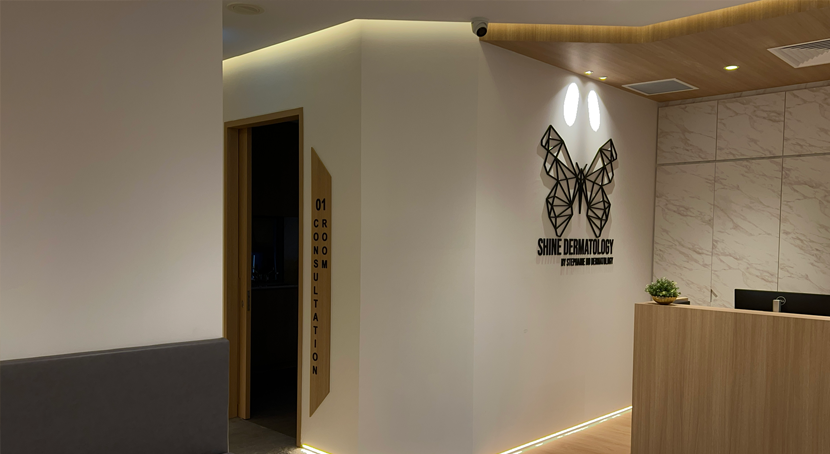What Is Skin Cancer?
Skin cancer occurs when skin cells undergo abnormal changes and begin to grow uncontrollably. It typically develops in areas exposed to ultraviolet (UV) radiation, such as the face, ears, neck, arms, and legs—but it can also appear on less exposed parts of the body.
There are three main types of skin cancer, each with different behaviours and levels of severity:
1. Basal Cell Carcinoma (BCC)
-
The most common form of skin cancer.
-
Grows slowly and rarely spreads (metastasises) to other parts of the body.
-
Often appears as a pearly or flesh-coloured bump, especially on sun-exposed areas.
2. Squamous Cell Carcinoma (SCC)
-
More aggressive than BCC and may grow more quickly.
-
Can appear as a scaly, red patch, ulcer, or wart-like growth.
-
Has a higher risk of spreading locally, especially if left untreated.
3. Melanoma
-
The most serious and aggressive form of skin cancer.
-
Often presents as a new mole or changes in an existing mole’s colour, shape, or size.
-
Can spread rapidly to internal organs if not treated early, and can be fatal.
Expertise You Can Trust
At Shine Dermatology, your care is led by dermatologists trained in the United Kingdom and fully accredited by Singapore’s Ministry of Health. Our team has extensive experience in diagnosing and managing all types of skin cancer, from the most common basal cell carcinomas to rare and aggressive melanomas. With years of clinical experience across both Singapore and the UK, our dermatologists bring a global perspective and proven expertise to ensure you receive accurate diagnosis, effective treatment, and long-term follow-up care.
When to See a Dermatologist
Regular skin checks are critical for early detection. You should schedule a consultation if you notice:
-
A new or changing mole or growth.
-
A sore that does not heal.
-
A mole that bleeds, itches, or looks irregular in shape or colour.
-
Any lesion that changes in size, colour, or elevation.
Individuals with the following risk factors should have routine skin checks every 6 to 12 months:
-
Personal or family history of skin cancer.
-
Fair skin or a history of frequent sunburns.
-
Excessive sun exposure or outdoor occupation.
-
Use of tanning beds.
-
Presence of many moles or atypical (dysplastic) moles.
-
Immunocompromised state.
Skin Cancer Diagnosis
At Shine Dermatology, diagnosis begins with a detailed skin examination. Suspicious growths may require:
-
Skin biopsy: A small sample is taken and sent for laboratory analysis to confirm the diagnosis and type of cancer.
-
Histopathology: This provides information on how deeply the cancer has invaded and guides treatment planning.
Treatment Options for Skin Cancer
Treatment is customised based on the type, size, depth, and location of the cancer. Options include:
1. Surgical Excision
-
Most common and effective treatment.
-
Removes the cancerous lesion along with a margin of healthy skin to ensure complete clearance.
2. Cryotherapy
-
Used for superficial skin cancers.
-
Involves freezing the lesion with liquid nitrogen to destroy abnormal cells.
3. Topical Medications
-
Suitable for superficial types of skin cancer such as superficial BCC.
-
Includes creams like imiquimod or 5-fluorouracil, prescribed and monitored by a dermatologist.
4. Mohs Micrographic Surgery (by referral)
-
A specialised technique for high-risk or facial cancers.
-
Involves step-by-step removal and microscopic examination of skin layers for complete margin control.
5. Advanced Treatment for Melanoma
-
For deeper or metastatic melanomas, treatment may include:
-
Wide local excision
-
Sentinel lymph node biopsy
-
Immunotherapy
-
Long-term monitoring and imaging follow-up
Prevention & Follow-Up
-
Use broad-spectrum sunscreen daily (SPF 30 or higher).
-
Wear protective clothing and avoid prolonged sun exposure, especially between 10am and 4pm.
-
Avoid tanning beds.
-
Perform monthly self-skin checks and attend regular follow-ups as advised by your dermatologist.
Book a Skin Cancer Screening at Shine Dermatology
If you’ve noticed any suspicious skin changes or have risk factors for skin cancer, schedule a professional evaluation today. Early detection significantly improves treatment outcomes and reduces the risk of complications.



